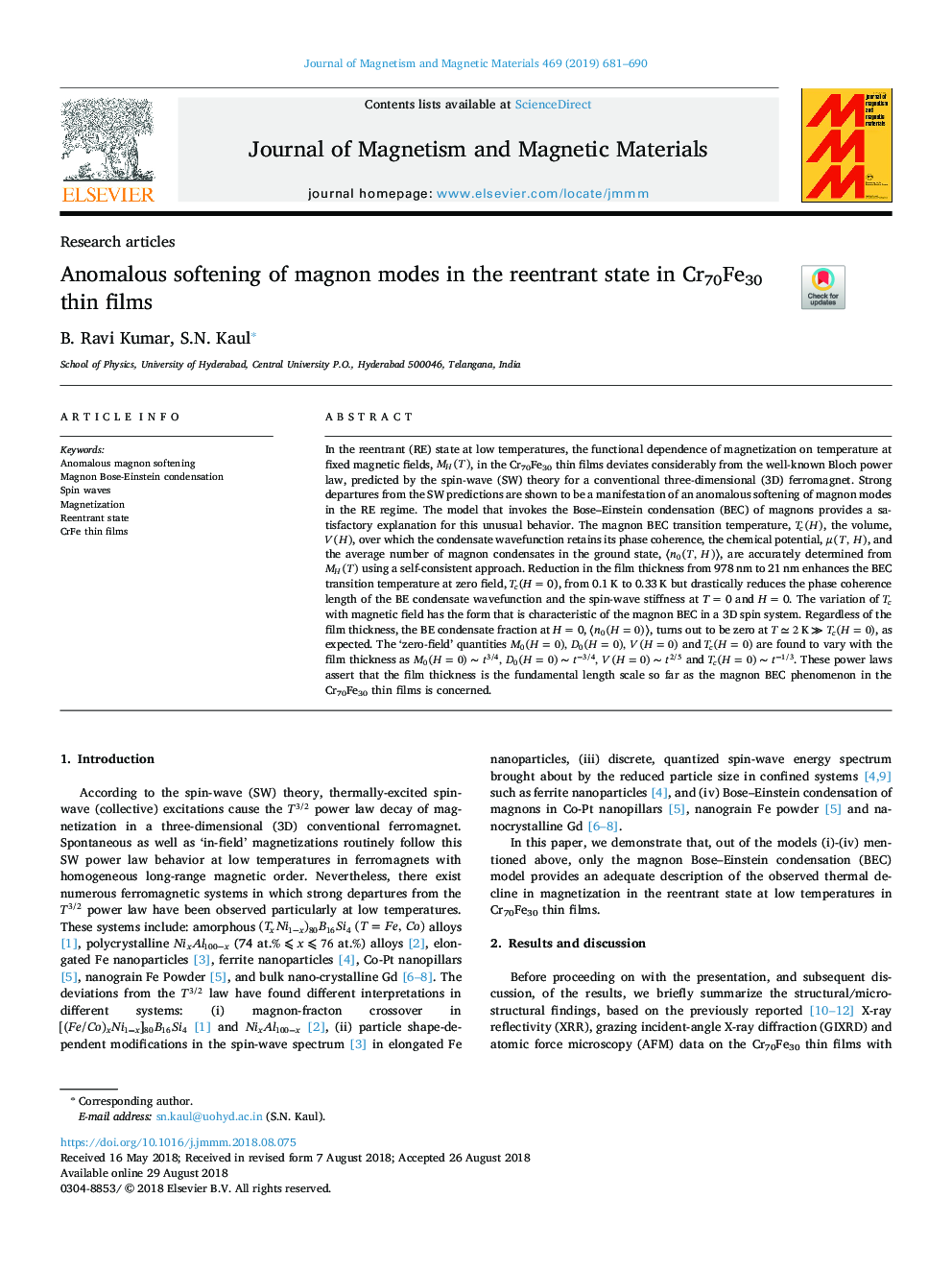| Article ID | Journal | Published Year | Pages | File Type |
|---|---|---|---|---|
| 11032747 | Journal of Magnetism and Magnetic Materials | 2019 | 10 Pages |
Abstract
In the reentrant (RE) state at low temperatures, the functional dependence of magnetization on temperature at fixed magnetic fields, MH(T), in the Cr70Fe30 thin films deviates considerably from the well-known Bloch T3/2 power law, predicted by the spin-wave (SW) theory for a conventional three-dimensional (3D) ferromagnet. Strong departures from the SW predictions are shown to be a manifestation of an anomalous softening of magnon modes in the RE regime. The model that invokes the Bose-Einstein condensation (BEC) of magnons provides a satisfactory explanation for this unusual behavior. The magnon BEC transition temperature, Tc(H), the volume, V(H), over which the condensate wavefunction retains its phase coherence, the chemical potential, μ(T,H), and the average number of magnon condensates in the ground state, ãn0(T,H)ã, are accurately determined from MH(T) using a self-consistent approach. Reduction in the film thickness from 978â¯nm to 21â¯nm enhances the BEC transition temperature at zero field, Tc(Hâ¯=â¯0), from 0.1â¯K to 0.33â¯K but drastically reduces the phase coherence length of the BE condensate wavefunction and the spin-wave stiffness at Tâ¯=â¯0 and Hâ¯=â¯0. The variation of Tc with magnetic field has the form that is characteristic of the magnon BEC in a 3D spin system. Regardless of the film thickness, the BE condensate fraction at Hâ¯=â¯0, ãn0(H=0)ã, turns out to be zero at Tâ2â¯K â«Tc(H=0), as expected. The 'zero-field' quantities M0(H=0),D0(H=0),V(H=0) and Tc(H=0) are found to vary with the film thickness as M0(H=0)â¼t3/4,D0(H=0)â¼t-3/4,V(H=0)â¼t2/5 and Tc(H=0)â¼t-1/3. These power laws assert that the film thickness is the fundamental length scale so far as the magnon BEC phenomenon in the Cr70Fe30 thin films is concerned.
Keywords
Related Topics
Physical Sciences and Engineering
Physics and Astronomy
Condensed Matter Physics
Authors
B. Ravi Kumar, S.N. Kaul,
